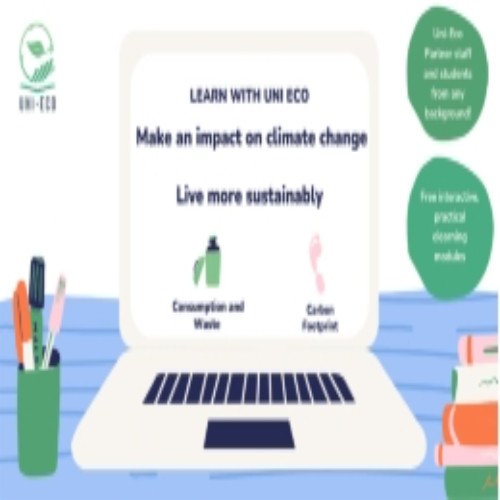
The Erasmus + UNI-ECO project, in which all the centers of the CHARM-EU alliance participate, presents a virtual training in sustainability aimed at the entire university community. The training consists of five free modules, designed to provide knowledge to develop practical and collaborative tools for innovation in sustainability at the university. It is not necessary to have previous knowledge in sustainability to participate.
The UNI-ECO project responds to the need to change our lifestyles and production methods to reduce the negative impact of human activities on the environment. "Consumption and waste" and "Carbon footprint" are the titles of the first two modules of this training, which are already available on the UNI-ECO website . They are aimed at students and university staff interested in living in a more sustainable way and increasing their knowledge and awareness of sustainability.
The modules focus on case studies, tips and ways to change habits. Each 90-minute virtual module contains videos, links, tests, and interactive presentations created by UNI-ECO sustainability experts. Students receive an electronic certificate when they complete the module.
UNI-ECO: for a more sustainable university
UNI-ECO is a strategic partnership co-financed by the European Commission's Erasmus + program. The project, which began in 2019, is dedicated to increasing habits, practices and sustainability projects at the five universities that make up the CHARM-EU alliance: the University of Montpellier, which coordinates the initiative, in collaboration with collaboration with the University of Barcelona, ??the University of Utrecht, Eotvos Lorand University in Budapest and Trinity College in Dublin.
Inspired by the United Nations Sustainable Development Goals ( SDGs ) and the European Green Pact , UNI-ECO has the support of two partners: CESIE and the Mediterranean Union of Universities ( UNIMED ).
Reference Link:https://www.ub.edu/web/ub/ca/menu_eines/noticies/2021/10/025.html